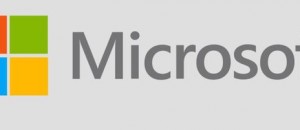Recall the comic I posted a couple days back that poked fun at Apple for dodging taxes, among other things? Yeah, well, some comics are actually based on the truth. The Permanent Subcommittee on Investigations in the United States Senate just released the results of an in-depth study that looked at how corporations are dodging taxes by using overseas tax shelters. While the subcommittee looked at “dozens” of tech companies, their report specifically points out how Microsoft and HP use a corporation income tax law loophole to avoid paying taxes on their income.
According to the report, Microsoft has avoided paying almost $7 billion in federal taxes since 2009 by
- Shifting roughly half of the revenue Microsoft stores made across the United States from 2009 to 2011 to a subsidiary in Puerto Rico
- “Checking a box” on Microsoft’s tax returns to tell the IRS to not include passive royalty income paid to Microsoft subsidiaries in the IRS’s calculation of Microsoft’s taxable income
The moves saved Microsoft $4.5 billion and $2.43 billion in taxes, respectively.
HP, on the other hand, did something a bit more clever. HP keeps most of its cash in offshore subsidiaries (in 2009 HP held $12.5 billion offshore while $800 in the United States) to avoid having to pay tax on it. To fulfill its cash flow needs, HP uses short-term loans from its international subsidiaries.
I’m not exactly sure how Microsoft managed to transfer revenues made in the United States to a Puerto Rico subsidiary without paying tax, but the major loophole exploited by Microsoft and HP is a tax law that does not force US companies to pay tax on earnings that are outside the United States. In other words, corporations only pay tax on the money when they repatriate the earnings (aka bring the cash back into the United States) which, as I’m sure you can guess, almost never happens because of this huge tax liability waiting at the door.
There are, of course, pros and cons to the above-mentioned tax law (which I won’t get into). However, I’m sure most people will feel anti-Microsoft and anti-HP sentiments upon reading this article. Before you go raging against these two companies, keep in mind that most every — if not every — multinational corporation is doing the same thing as Microsoft and HP… including the likes of Apple and Google. Why? Because it is simply smart business.
Think about it. Do you, as an individual, try to pay the maximum amount of tax possible, or do you try to take advantage of all credits, deductions, and loopholes you can find to lower your tax bill? Do you know anyone that tries to pay the most tax they can? The answer is you and everyone you know (probably) try for the lowest amount of tax possible — and all small and medium businesses behave the same. So then why should multi-billion dollar corporations not try to avoid as much tax as they possibly can, without breaking any laws? That, as they say, is the multi-billion dollar question because indeed, as the leader of the subcommittee Senator Carl Levin (D) admits, Microsoft (and presumably HP and other companies they looked at) broke no laws — they just did what the law allowed them to do.
If Microsoft and co didn’t break any laws, we should simply change the relevant tax laws to prevent this sort of thing, right? After all, we don’t want our money to create jobs for foreigners, especially those Communist pigs in China. Amirite? That, my friends, is a complicated discussion for another time.

 Email article
Email article




